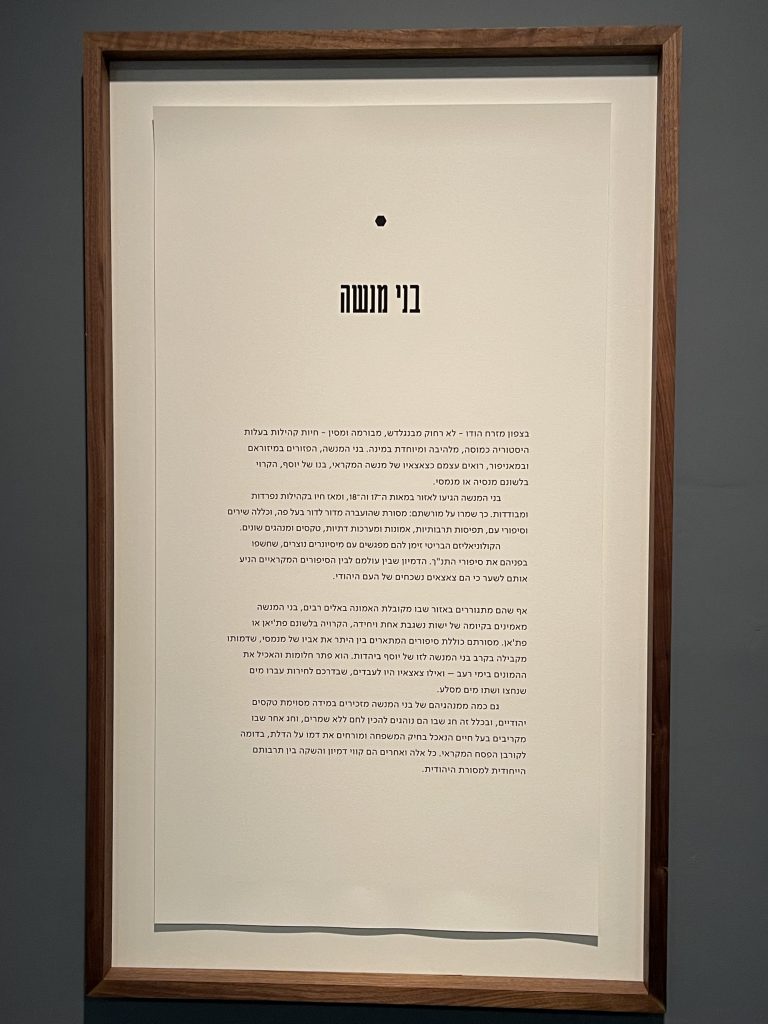Text Panel
In Northeast India – not far from Bangladesh, Burma and China – live communities that possess a mysterious, fascinating and exceptional history. The Bnei Menashe, scattered among Mizoram and Manipur, consider themselves descendants of the Biblical Menashe, the son of Joseph, whom they call Manmási or Manmásia. The Bnei Menashe arrived in the area in the 17th and 18th century, and since that time have been living in separate and isolated communities. This allowed them to preserve their heritage: an oral tradition that passed through the generations in songs and myths, cultural and artistic notions, religious systems, rites and habits. British colonialism introduced them to Christian missionaries and the stories of the Bible. The similarities between their belief system and the Biblical stories led them to assume that they were forgotten descendants of the Jewish people. Within the predominant Indian religious systems, the Bnei Menashe stand out for their belief in a single, transcendental being called Pathiyan or Pathan. Their tradition includes myths that describe Manmási’s father, a figure similar to the Biblical Joseph. he solved dreams and fed the villagers during a famine – whereas his offspring were made into slaves, whose exodus involved a parting of the sea, and water springing from a rock. Several of the Bnei Menashe customs recall Jewish rites, including a holiday in which unlevered bread is prepared, and another in which an animal is sacrificed and ate by the family and, as in the Biblical story of Pesach, a bit of its blood is smeared on the door.

